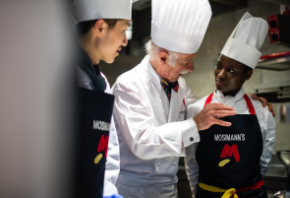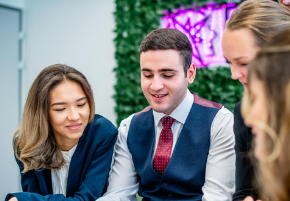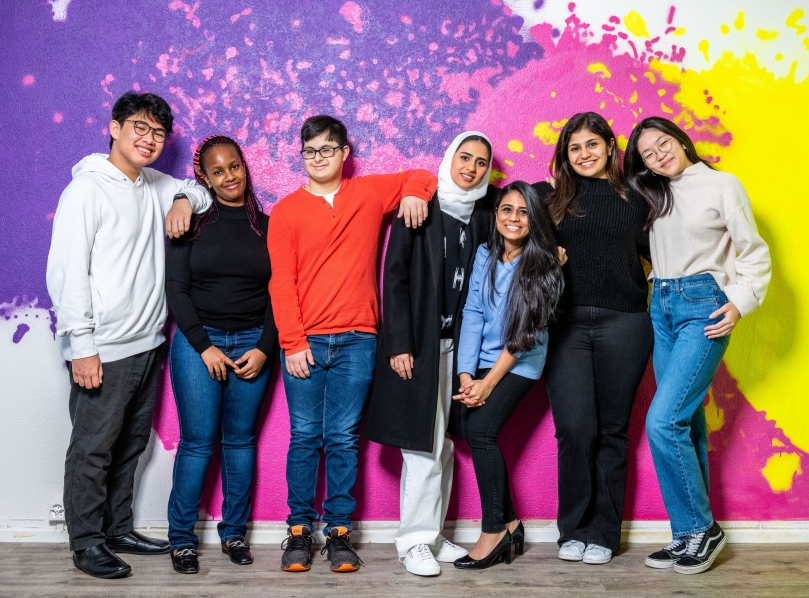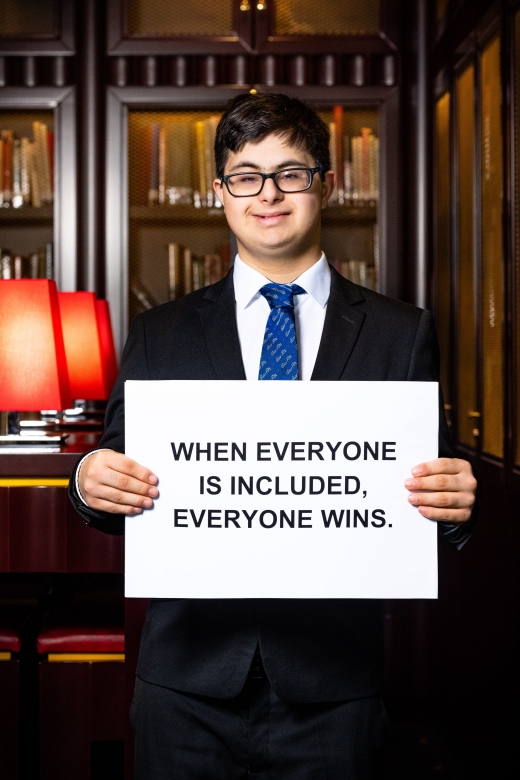- About
- Programs
- Innovation & Research
- Campus Life
- Career Services
- Admissions
- News & Events
- Alumni
Creating an inclusive learning environment
Creating an inclusive learning environment
First-year student, Parth, paves the way for more students who learn differently to pursue their dreams in hospitality and culinary arts.
The transition to university is one of the first steps into adulthood – a chance to explore, grow, and challenge oneself in new and independent ways.
Like most of our first-year students, Parth is stepping out on his own for the first time. He’s enjoying the freedoms of campus life, doing his own laundry for the first time, and navigating a bit of homesickness every now and then, while managing a workload of demanding classes.
Yet, for Parth – a young person with Down syndrome – the road to university presented unique challenges he was determined to overcome.
Taking a love of food to the next level
Parth developed a love of food when he was a child and began cooking with his mother when he was 10 years old.
“When I eat out with my family, I love to try different cuisines. We eat hot and sour soup, tofu with vegetables, spicy noodles and rice dishes,” says Parth. Needless to say, Parth is delighted with the many food choices available on campus in Le Bouveret!
His teachers at the International School of Brussels which he previously attended, encouraged him to pursue his passion and develop his cooking skills by working at the campus cafe. There, Parth learned to create simple recipes, calculate measurements, budget for ingredients, and build shopping lists.
Would Parth be welcomed and included into student life by his peers? Most importantly, would he be happy there?
Even with his experience, making the leap and moving away from his home and school in Brussels to pursue his dreams at Culinary Arts Academy/César Ritz Colleges in Switzerland was a big step. Parth and his family had their concerns.
“We wanted to know how the school and teaching staff would support Parth’s unique learning needs. Would Parth be welcomed and included into student life by his peers? Most importantly, would he be happy there and, if not, how would we handle that?” says Parth’s mother, Preeti Dhawan.
Uncharted territory
For our leadership and lecturers, this was uncharted territory – as this was the first time a student with these learning differences was enrolled at the school.
“There were many questions and understandable concerns from an academic perspective,” says Maxine Kibble, a specialist teacher who works alongside Parth. “How much of the coursework would need to be adapted and to what extent? Would the lecturers be able to cope with care to more diverse needs in the classroom and kitchen environment? We wanted to ensure Parth’s experience with us was positive and tailored to him. Thankfully, the faculty was successful at doing that.”
In the six months since Parth arrived on campus, it’s clear he is thriving and being stretched both academically and personally – making new friends and exploring new places.
The faculty has been flexible in finding suitable modules for Parth to follow from both the hospitality management and culinary arts programs, repeating modules as needed, and tailoring them to his learning needs. Some of the tasks have needed to be broken down or explained in a different way which has required teachers to be creative, and for Parth’s classmates to sometimes learn new ways of working collaboratively in a team. It’s been a new challenge for the school, but one that’s been wholeheartedly embraced by students and teachers alike.
Opening the way for others
While this is the first time someone with Parth’s particular learning profile has been enrolled at our school, we hope that this positive experience will enable others to follow. In fact, our aspiration is that this opens the door for more students with different abilities to pursue their passions and dreams through higher education. Despite the challenges they have faced along his educational journey, Parth’s parents were headstrong on giving him the possibility to receive an education like everyone else.
Education allows people to grow and to stand up for themselves and what they believe in...if someone is capable of achieving something, then they should be given the chance to try it, no matter who they are.
“Education allows people to grow and to stand up for themselves and what they believe in,” says Parth’s father, Nitin Dhawan. “I really hope that the world will become more open to supporting students with learning support needs – because if someone is capable of achieving something, then they should be given the chance to try it, no matter who they are.”





















